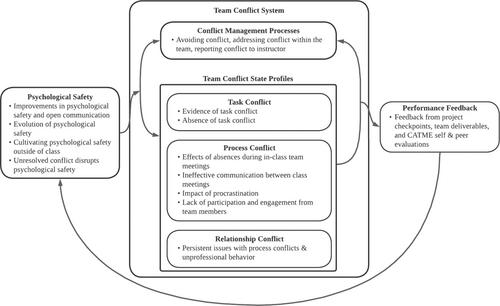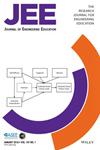Developing teamwork skills is a central objective of engineering education. Psychological safety and conflict management are pivotal components of teamwork, yet despite their significance, research in engineering project-based learning (PBL) contexts is scant. Understanding students' experiences with psychological safety and its interaction with conflict is crucial to inform PBL pedagogy.
This study delves into first-year engineering students' experiences of psychological safety and conflict, including their evolution in a PBL course.
Throughout the semester, we collected data from 82 students via written reflections and focus groups. Employing a thematic analysis underpinned by the team conflict dynamics model, we characterized students' experiences with psychological safety and conflict.
At the semester's outset, psychological safety was notably lacking. Students often hesitated to share ideas due to apprehensions about peer reactions and fears of negative judgments. As the semester advanced, consistent positive affirmations nurtured psychological safety, increasing students' confidence and readiness to discuss ideas openly and engage in healthy task conflict. Notably, process conflicts arising from absenteeism, poor communication, and procrastination were prevalent across teams. When unresolved, these conflicts eroded psychological safety, intensifying stress, exacerbating frustrations, and provoking relationship conflict.
Our study underscores the intertwined nature of psychological safety and conflict in shaping the first-year design experience in student teams. We urge faculty to recognize their pivotal role in fostering an inclusive culture and highlight pedagogical strategies that can bolster psychological safety at the onset, encourage healthy task conflict, and monitor unhealthy process and relationship conflicts.



